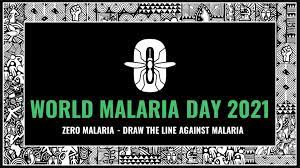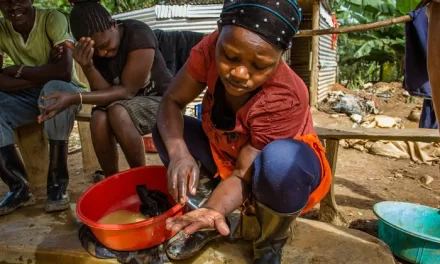Hosted by the World Health Organization in collaboration with Religions for Peace and the EPI-WIN Faith Communities of Practice this global conference looks at ‘Strengthening national responses to health emergencies: WHO, Religious Leaders, Faith-based Organizations, Faith Communities and National Governments’.
Throughout history religious leaders, faith-based organizations, and faith communities at all levels, have played a key role in health emergency preparedness and response, and in many places, in ongoing health service delivery.
The COVID-19 pandemic has magnified the important role faith partners, as trusted community leaders, play in mobilizing community led action to protect, care for and advocate for marginalized or vulnerable people; sharing critical, accurate and tailored health information; and providing spiritual care, guidance, and support during times of crisis and uncertainty.
Together WHO and faith partners work with and in support of national governments to achieve joint health goals, mitigate the negative effects of health emergencies and ultimately help to bring them to an end.
This conference delves into good practice examples, which cover diverse themes, regions, and faiths, and represent a valuable resource for the current and future health emergencies.
The sessions of the conference will feature innovative responses in the areas of (i) Spiritual care during times of crisis, (ii) Country collaboration between WHO, faith partners and national governments, (iii) Trust and health histories, and (iv) Communication and advocacy for vaccine equity, access, and uptake.
The global conference will:
- convene representatives of national governments, faith partners, WHO offices and other stakeholders
- facilitate the exchange of experiences and lessons learned
- identify and collate good practice examples of collaboration between these actors during the COVID-19 pandemic to inform response to future public health emergencies
- further expand the multidisciplinary network of faith partners
SAVE THE DATE!
Translation available in French, Spanish and Arabic.
Register below or follow sessions live-streamed on WHO EPI-WIN YouTube channel.
20 October 10:00 – 12:30 CEST
Chaplaincy: Critical and changing roles in COVID-19
- Rehanah Sadiq, Muslim Chaplain, Women’s Hospital Birmingham UK National Health Service, UK
- Wendy Cadge, Barbara Mandel Professor of Humanistic Social Sciences and Professor of Sociology, Brandeis University, USA
- Austyn Snowden, Professor in Mental Health, Edinburgh Napier University, UK; Lead Researcher ERICH, Belgium
- Father John Mosoti, Camillian Chaplain, Servants of the Sick, Kenya
- Fabian Winiger, Postdoc and Project Lead at the Professorship for Spiritual Care, Zurich University, Switzerland
Palliative care during COVID-19
- Emmanuel Luyirika, Executive Director, African Palliative Care Association (APCA), Uganda
- Dr M R Rajagopal, Chairman, Pallium India, India
- Hibah Osman, Founder, Balsam, Lebanese Center for Palliative Care, Dana-Farber Cancer Institute, USA
- Father John Toai, MI, Director and Founder, Mai Tam House of Hope, Vietnam
- Rick Bauer, Roman Catholic Missioner, Maryknoll Fathers and Brothers, USA
- Marie-Charlotte Bouesseau, Team Lead, Palliative Care, WHO HQ, Switzerland
21 October 14:00 – 16:30 CEST
Innovations in delivering spiritual and mental health care
- Dr Cheryl Giles, Francis Greenwood Peabody Senior Lecturer on Pastoral Care and Counseling, Harvard Divinity School, USA
- Swami Tyagananda, Hindu monk of the Ramakrishna Order, and Hindu Chaplain at Harvard University, USA
- Dr Mohammed Abo-Hilal, Founder, Syria Bright Future (SBF) Organization, Syria
- Hailey Fudu, Secretary, Religions for Peace South Africa, South Africa
Closing places of worship: Social care consequences and responses
- Raymond Perrier, Director, Denis Hurley Centre, South Africa
- Dr Mukunda Madhava Das, Vice President, International Society for Krishna Consciousness (ISKCON), India
- Welinton Peirera, Advocacy and Institutional Relations Director, World Vision Brazil, Brazil
- Savraj Singh Dhillon, Director, Guru Maneyo Granth Gurdwara, UK
- Chris Kazadi Lupemba, Chairperson, Interfaith Youth Network of the Democratic Republic of the Congo, Honorary President, Religions for Peace Bahá’í, DRC
- Sally Smith, Senior Advisor, WHO EPI-WIN Team, Switzerland

3 November 10:00 – 11:30 CET
WHO Strategy for Engaging Religious Leaders, Faith-Based Organizations and Faith Communities in Health Emergencies
Kenya case study
Session details will be posted here soon.
4 November 14:30 – 15:30 CET
Zimbabwe case study
Session details will be posted here soon.
10 November 10:00 – 12:30 CET
Philippines case study
- Dr Rabindra Abeyasinghe, WHO Representative to the Republic of the Philippines, WHO Philippines
- Father Dan Vicente Cancino Jr, MI, Executive Secretary-Director, Catholic Bishops’ Conference of the Philippines-Episcopal Commission on Health Care, Philippines
- Father Antonio E. Labiao, Jr., Executive Secretary, Caritas Philippines, Philippines
- Ms Ma. Arlene S. Arbas, Chief, Media & External Relations Division, Department of Health – Health Promotion Bureau, Philippines
- Pastor Choy Magdaong, Manager for Faith & Development, World Vision, Philippines
- Mr Ronilo Oyanib, Program Manager, Philippine Children’s Ministries Network (PCMN), Philippines
- Dr Beverly Lorraine Ho, Concurrent Director IV, Health Promotion Bureau and Disease Prevention and Control Bureau, Department of Health, Philippines
- Kira Fortune, Coordinator, Social Determinants of Health & Violence and Injury Prevention, WHO Western Pacific Region
- Ava Batay-an, Consultant for Community Engagement, COVID-19 Response, WHO Philippines
Nigeria case study
Session details will be posted here soon.

24 November 14:00-15:00 CET
Highlights from WHO-RfP-UNICEF COVID-19 Vaccine Communication & Advocacy series (2021)
Session details will be shared soon.

Date to be confirmed
Closing plenary
December – date to be confirmed
About the EPI-WIN Faith Communities of Practice
The WHO EPI-WIN team within the “Infodemic Management Pillar” of the WHO COVID-19 response launched three ‘Communities of Practice’ (COPs) in late 2020 to help shape future work in three areas relevant to faith partners (which includes religious leaders, faith-based communities, and faith-based organizations). The three COPs include: communications, research and learning, and the development of a strategy for engagement between WHO and faith partners. The four themes and sub-themes of the conference have been identified over 6 months of consultation and discussion among the COPs and subsequent working groups.












